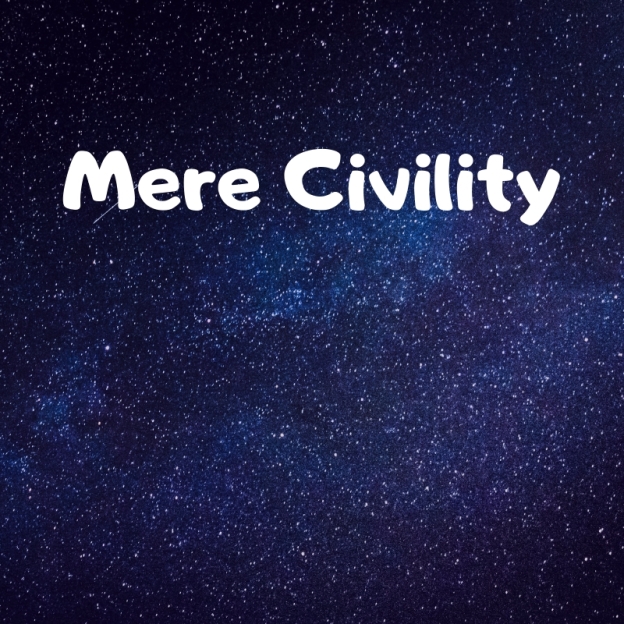One of my favorite podcasts is called Philosophy Bites. The idea behind the podcast is: “top philosophers interviewed on bite-sized topics”. One of the most recent episodes talked about the idea of modern-day civility. The philosopher they interviewed on the episode is Teresa M. Bejan who is the author of Mere Civility and also has a Ted Talk about the same subject.
What interested me about the podcast was when Ms. Bejan spoke about modern call-out culture. It always has interested me how more and more people are calling out injustice when they see it. This idea that we “call out others” and “cry out against injustice” while not allowing the feelings of those that are actively harming students specifically in our schools stop us from speaking truth to power. This does not mean that we go out purposefully attempting to harm people. It means that we don’t allow other people’s sensitivities to get in the way of us getting the truth out or compromising our views.
In the interview, Ms. Bejan talks about the idea of civility skepticism. Civility skepticism is:
“…the idea that civility is not a virtue at all. Its a way of trying to silence the speech of others. The way of trying to suppress ideas that you don’t like or even exclude or marginalize those twithwhom you disagree or don’t even see as members of a civil or civilized polity. Civility in an unjust society isn’t a virtue at all. Not only do we have a duty to tell the truth and not to censor ourselves out of respect for someone else’s feelings it’s actually a duty to offend their sensibilites because those priviliged by an unjust status quo will always be offended when they are presented by the truth.”
It looks like she is actually making the case for being uncivil. We have a duty to ourselves to be open and honest when we have a disagreement. Dr. Brene Brown calls this “clear is kind”. There is a point to disagreement though where being uncivil is counterproductive to our goal of engaging in the disagreement.
“If civility is a kind of claim to regulating or governing our disagreements on the basis of something shared then what really matters is exactly what we need to share in order to have a civil disagreement. Rejecting civility all together under-reacts to the challenges that disagreements particularly disagreements about questions that we deem fundamental, maybe questions about religion and politics (and race), that go to the heart of how we see the world and each other. That those kinds of disagreements are hard to have and yet we need to be able to have them. When we talk about civility we talk about what are the qualities of a conversationalist that make those really difficult disagreements possible. “
To me, this makes civility a fluid idea. Civility would vary by who we interact with and what both of us consider civil. This also raises the idea that being civil with people who do not honor your humanity is a pointless endeavor. If we both don’t come to the disagreement with the idea that the other deserves the basic rights and privileges of a human being on this planet than we don’t have a disagreement, we have incompatible views of right and wrong. In my opinion, civility is not called for, nor needed in this scenario.
The gold nugget from the podcast was Teresa M. Bejan’s philosophy of Mere Civility.
Mere Civility I would define as minimal conformity to social norms of respectful behavior. Specifically the minimum necessary to keep the conversation going. You can tell the demands of Mere Civility in any given conversation are highly context-dependent and highly audience dependent. Instead of fixating on rules of civil conduct we think about civility as a prudential or practical judgment about what’s required in a given conversation with a given conversationalist so that conversation can continue. But then it has this other element which is that it remains committed also to telling the truth to our interlocutors and part of that truth involves telling them what we really think of them and their views. Mere Civility is a commitment both of not pulling our punches but also to not landing them all at once so that conversation can continue.
This was mind-blowing to me. I recently have had a friendship stop because I landed all my punches at once. The conversation no longer continues. That is not what I wanted to happen with this particular relationship. There have been other times where I have been in disagreements with those I have no social capital with and Mere Civility was not necessary because I did not want nor need the conversation to continue.
As always I appreciate you taking the time to read and engage in my work. If you have anything you would like to add or discuss please leave a comment, hit me up on Twitter @schleiderjustin or join me on Voxer as we discuss everything education.
